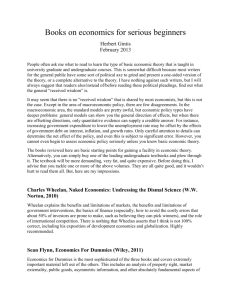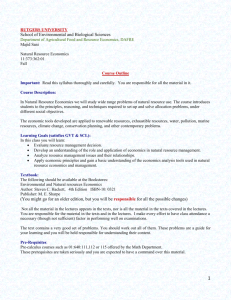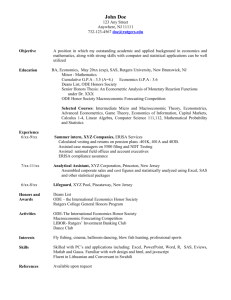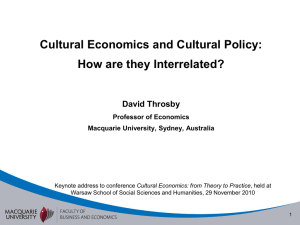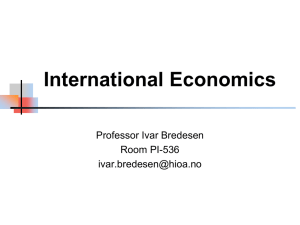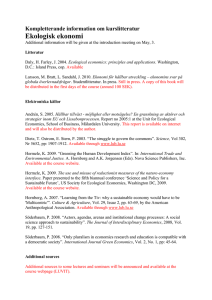SSE105 (International Economics)
advertisement
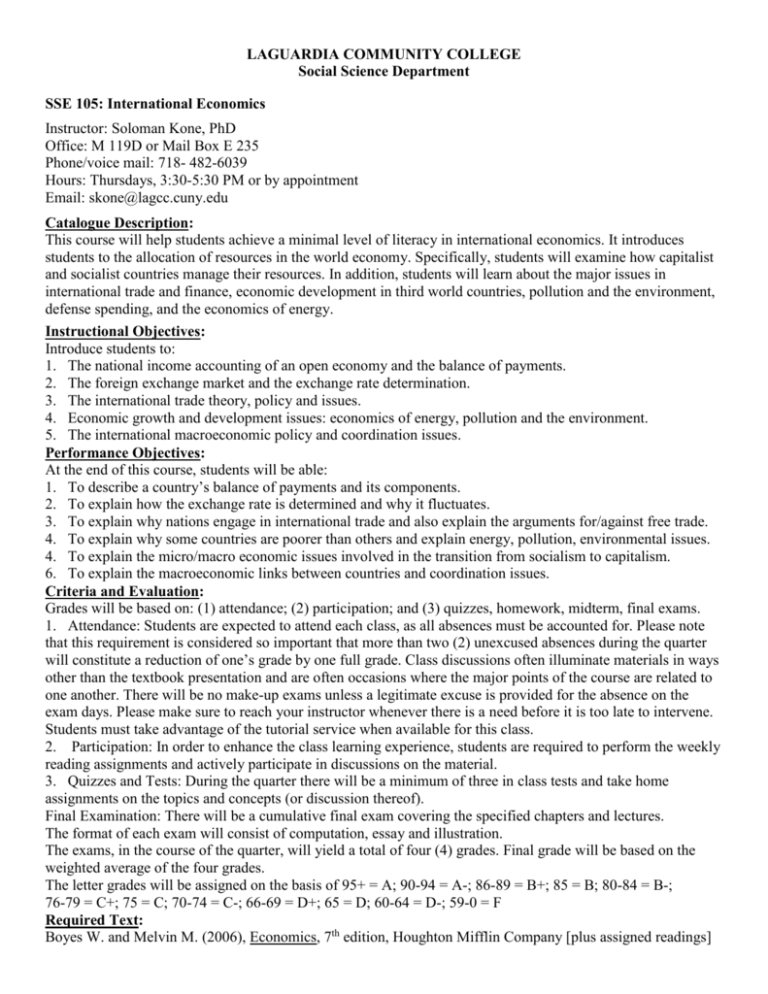
LAGUARDIA COMMUNITY COLLEGE Social Science Department SSE 105: International Economics Instructor: Soloman Kone, PhD Office: M 119D or Mail Box E 235 Phone/voice mail: 718- 482-6039 Hours: Thursdays, 3:30-5:30 PM or by appointment Email: skone@lagcc.cuny.edu Catalogue Description: This course will help students achieve a minimal level of literacy in international economics. It introduces students to the allocation of resources in the world economy. Specifically, students will examine how capitalist and socialist countries manage their resources. In addition, students will learn about the major issues in international trade and finance, economic development in third world countries, pollution and the environment, defense spending, and the economics of energy. Instructional Objectives: Introduce students to: 1. The national income accounting of an open economy and the balance of payments. 2. The foreign exchange market and the exchange rate determination. 3. The international trade theory, policy and issues. 4. Economic growth and development issues: economics of energy, pollution and the environment. 5. The international macroeconomic policy and coordination issues. Performance Objectives: At the end of this course, students will be able: 1. To describe a country’s balance of payments and its components. 2. To explain how the exchange rate is determined and why it fluctuates. 3. To explain why nations engage in international trade and also explain the arguments for/against free trade. 4. To explain why some countries are poorer than others and explain energy, pollution, environmental issues. 4. To explain the micro/macro economic issues involved in the transition from socialism to capitalism. 6. To explain the macroeconomic links between countries and coordination issues. Criteria and Evaluation: Grades will be based on: (1) attendance; (2) participation; and (3) quizzes, homework, midterm, final exams. 1. Attendance: Students are expected to attend each class, as all absences must be accounted for. Please note that this requirement is considered so important that more than two (2) unexcused absences during the quarter will constitute a reduction of one’s grade by one full grade. Class discussions often illuminate materials in ways other than the textbook presentation and are often occasions where the major points of the course are related to one another. There will be no make-up exams unless a legitimate excuse is provided for the absence on the exam days. Please make sure to reach your instructor whenever there is a need before it is too late to intervene. Students must take advantage of the tutorial service when available for this class. 2. Participation: In order to enhance the class learning experience, students are required to perform the weekly reading assignments and actively participate in discussions on the material. 3. Quizzes and Tests: During the quarter there will be a minimum of three in class tests and take home assignments on the topics and concepts (or discussion thereof). Final Examination: There will be a cumulative final exam covering the specified chapters and lectures. The format of each exam will consist of computation, essay and illustration. The exams, in the course of the quarter, will yield a total of four (4) grades. Final grade will be based on the weighted average of the four grades. The letter grades will be assigned on the basis of 95+ = A; 90-94 = A-; 86-89 = B+; 85 = B; 80-84 = B-; 76-79 = C+; 75 = C; 70-74 = C-; 66-69 = D+; 65 = D; 60-64 = D-; 59-0 = F Required Text: Boyes W. and Melvin M. (2006), Economics, 7th edition, Houghton Mifflin Company [plus assigned readings] COURSE OUTLINE INTERNATIONAL ECONOMICS Text: Economics, Seventh edition, Boyes and Melvin Unit I: [Week 1, 2] Introduction to Economics Chapter 1: What is Economics Chapter 2: Scarcity and Choice Chapter 32: Natural Resources Market Unit II: [Week 3, 4, 5] National Income Accounting, Balance of Payments and the Foreign Exchange Market Chapter 6: National Income Accounting for an Open Economy Chapter 7: An Introduction to the Foreign Exchange market and the Balance of Payments Chapter 37: Exchange Rates and Financial Links Between Countries Unit III: [Week 6, 7, 8] Issues in International Trade Chapter 35: World Trade Equilibrium Chapter 36: International Trade Restrictions Unit IV: [Week 9, 10, 11] Economic Growth and Development Chapter 17: Economic Growth Chapter 18: Development Economies Chapter 19: Globalization Unit V: [Week 12] International Macroeconomic Policy and Issues Chapter 15: Macroeconomic Policy and Coordination [Assigned Readings and Web inquiry activities]

